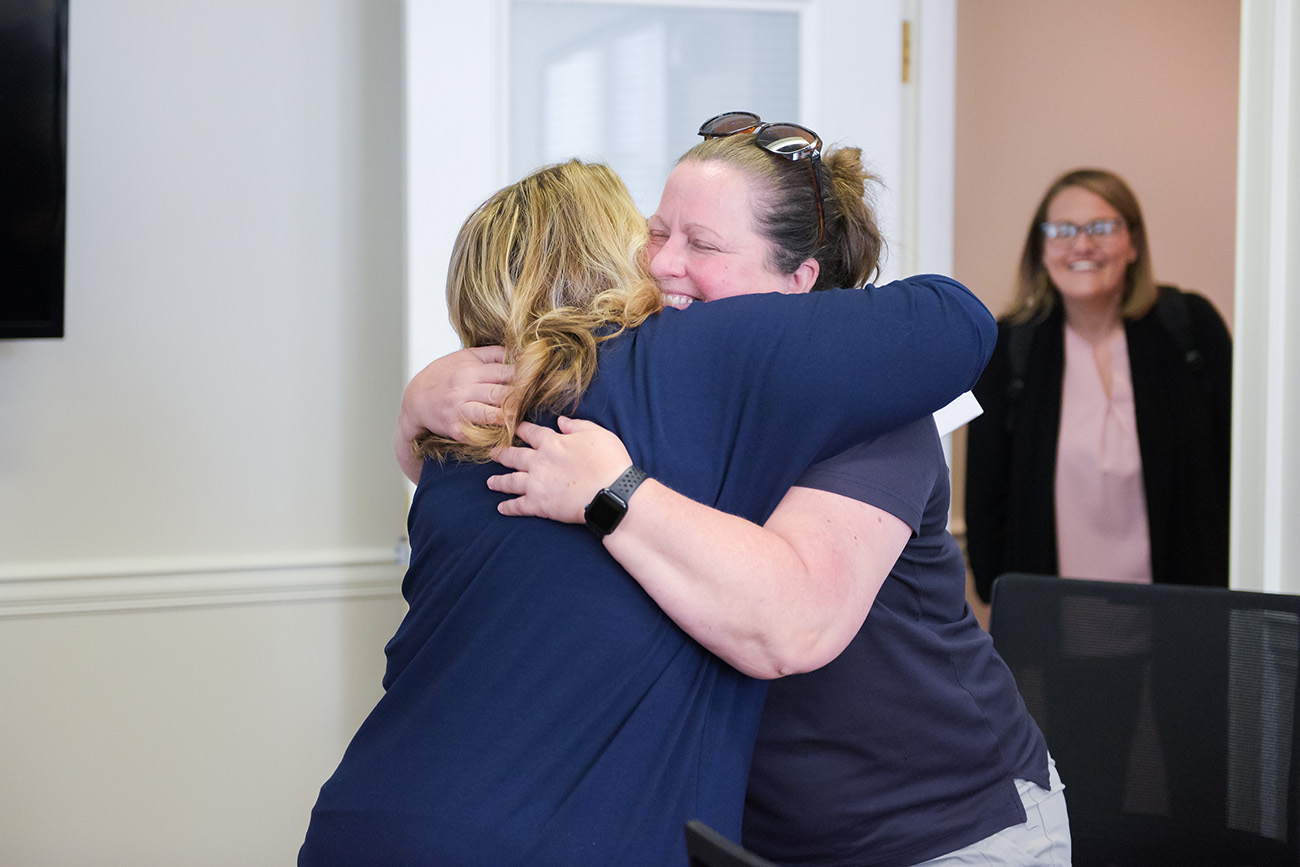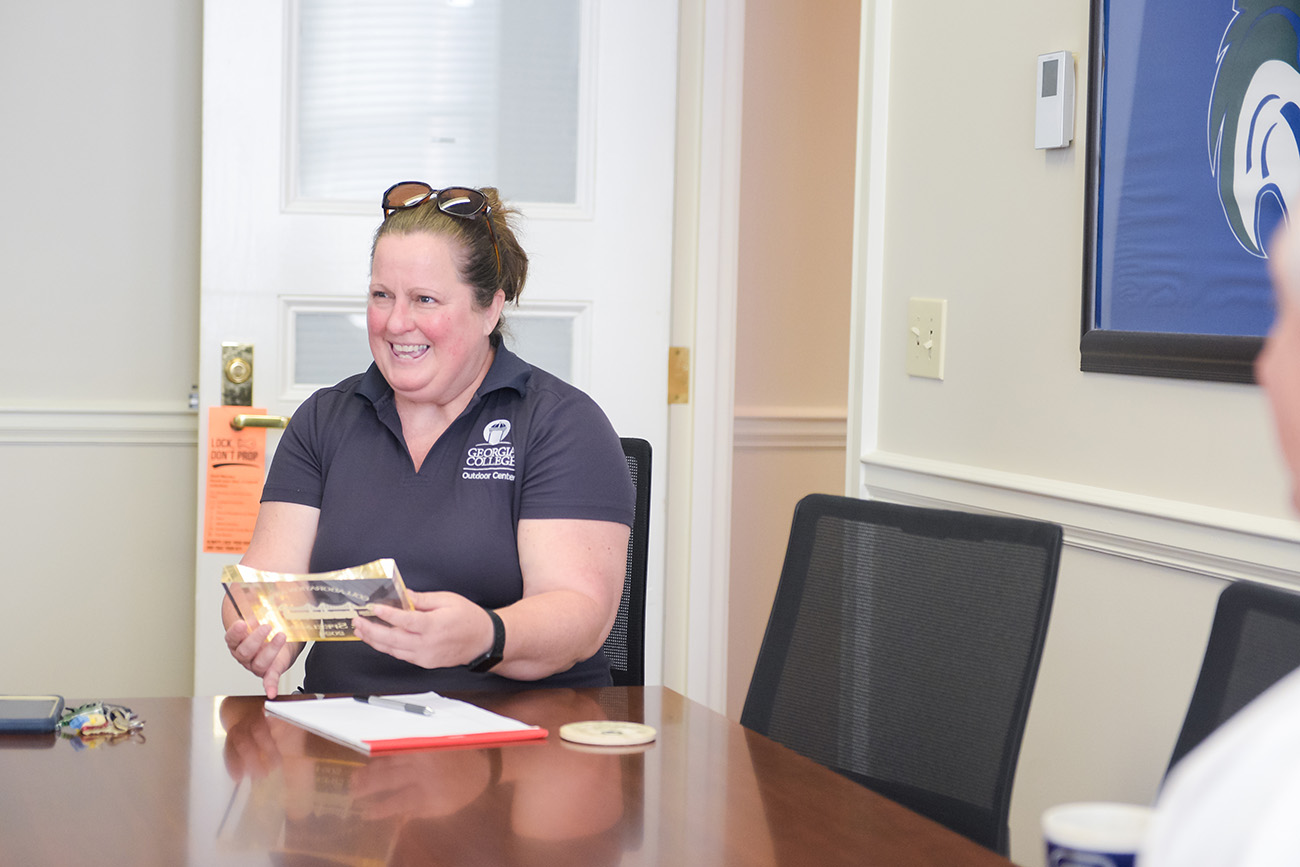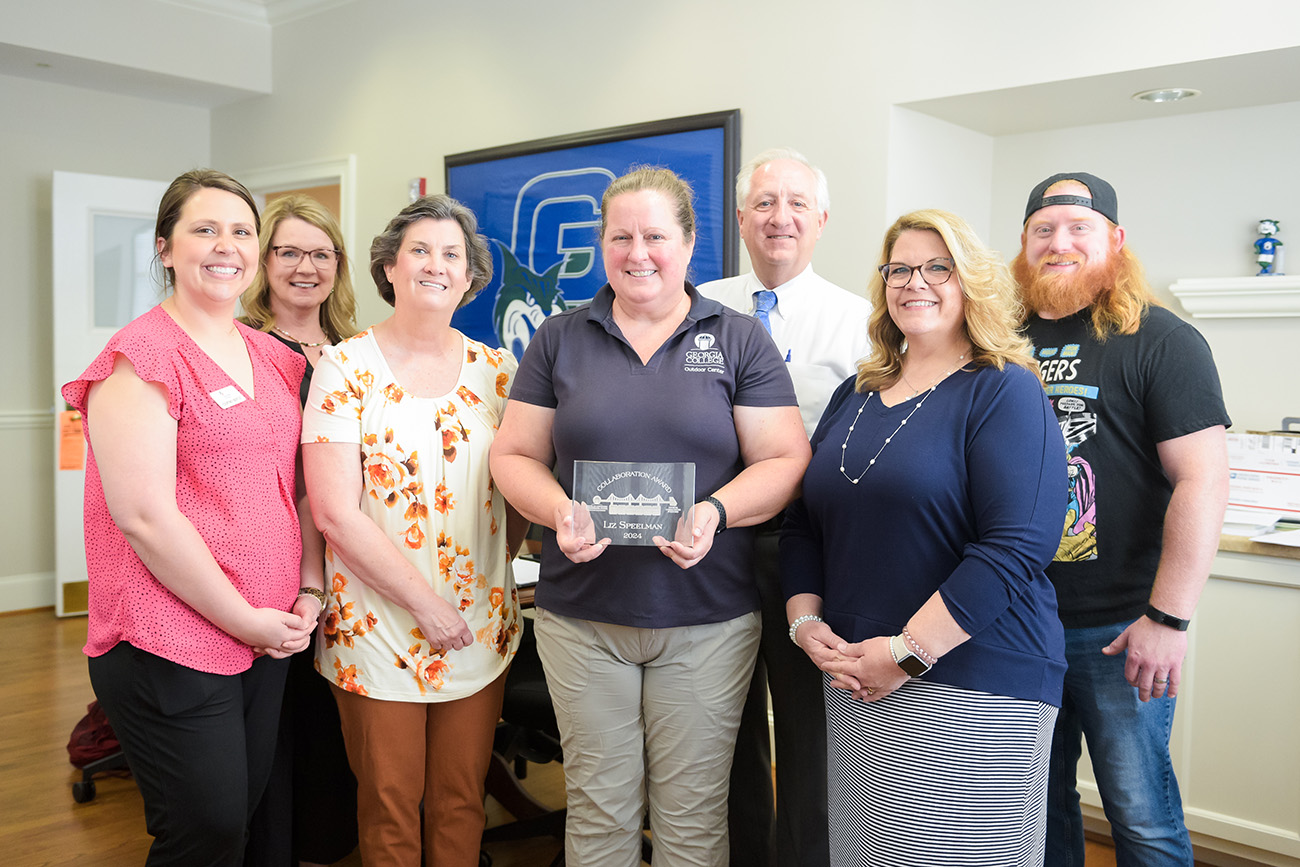GCSU MVP Liz Speelman honored with Collaboration Award
I
t’s what has gotten her across North America and over the Atlantic Ocean to become Georgia College & State University’s Outdoor Center director and senior lecturer of outdoor education.
Speelman, ’07, has been a faculty and staff MVP at Georgia College for the last 15 years and plays a part in many areas across campus.
From teaching classes in the Outdoor Center to serving our Leadership Programs and supporting our current strategic plan—it’s hard to find a place where she hasn’t made her mark.
“I like being here, I love teaching our students, and I love who we get to work with,” Liz said. “That’s never changed.”
That’s why she was honored with the School of Continuing and Professional Studies’ inaugural Collaboration Award. The award honors those who have opened the door to collaboration with the school.

“Liz has worked closely with our High Achievers Program, provided support for retreats in Historic Museums, and serves as one of our valued instructors in the Leadership & Management Academy in Continuing & Professional Education,” said Angela Criscoe, executive director of the SoCPS.
“Her interpersonal skills, flexibility and willingness to share the responsibilities of providing a quality program are reasons we value our partnership with her and chose her as this year's internal partner awardee for the SoCPS Collaboration Award.,” Criscoe said.
As a youth in Toronto, Canada, Liz’s fascination with the outdoors was fostered by family camping trips and activities outdoors. Continuing that adventurous tradition, Liz later crossed the Atlantic to study abroad at the University of Stirling in Scotland.
While studying environmental science there, Liz developed a ‘If I could do this, what else can I do?’ mentality.
That ethos eventually lead to her dream job at Georgia College. But before that, she formed her passion for teaching in the schools of Ghana in West Africa.
After graduating university, Liz worked with Voluntary Service Overseas, a nonprofit international development charity. For those two years she taught high school math and physics, with and without electricity.
She taught with creativity, and the experience transformed her idea of what didactic teaching could be.
“That experience showed me that every class was different and each year class was different,” Liz said. “Trying to make learning connect for each student was what started my love of teaching.”
After that kind of world bounding, Liz couldn’t stay in one place. She worked for the Youth Learning Institute at Clemson University and taught environmental education to school groups. When she wanted to pursue an advance degree, she found Georgia College.
She studied outdoor education administration as a graduate assistant under the tutelage of faculty like Professor Emeritus Dr. Jude Hirsch and Professor of Psychology Dr. Lee Gillis.
“As educators, we encourage folks up to and right outside their comfort zone,” Gillis said. “That’s what Liz does as a facilitator of groups on both the challenge course and in the classroom.”
For Liz, her faculty mentors helped shape her career, challenging her to go beyond what she thought was possible. Now she leads groups of students and clients to challenge their communication and leadership potential.

“Sometimes I think my entire career can be bottled down to two things: teaching people how to build relationships and communicate with one another,” Liz said. “If we can help build teams, then they’re going to be more successful, and I’ve seen the power of having some intentional fun together.”
As the only full-time staff member at the Outdoor Center, Liz leads successful team-building programs. As a recognized expert in the U.S. and Canada for challenge course teamwork effectiveness, she’s a model to her students and a community collaborator.
From Canada to Ghana to Clemson, Liz brought energy, perseverance and loyalty to everything she does. Luckily for Georgia College, she would rather be here than anywhere else.
“I don’t know where else I could do what I get to do here,” Liz said. “Number one for me is the interaction with the students. I love what we get to do with our clients, and now I get to mentor students who are working with clients.”
“I’m beside them and sometimes the facilitator for them, but it’s that mentorship of our students that motivates me,” she said. “I absolutely do what I do for our students—number one, hands down.”

Learn more about the Distinguish Pillar in our Imagine 2030 Strategic Plan
